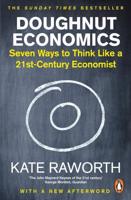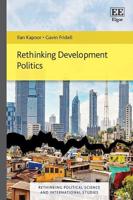Publisher's Synopsis
Trade Protectionism in an Uncertain and Interconnected Global Economy presents the results of almost five years of research on the political economy of trade policy. It argues that in a global context dominated by economic uncertainty and interdependencies, the mechanisms that have fueled the diffusion of trade liberalization under the World Trade Organization (preferential trade agreements and global value chains) can also become channels for protectionism (based on less observable non- tariff or murkier measures).
Countries have changed the way they respond to protectionism, which impacts bilateral relations. The author explores why and how increased global trade interconnectivity has also become a channel for new forms of trade protectionism, and especially how this impacts the developing world. These counterintuitive dynamics constitute the newest wave in the literature on trade interdependence. Previous research on trade policy has often concentrated on just one aspect of the effects of an interconnected global economy: the more political and economic linkages countries build among themselves, the fewer tensions they will generate across borders. From a trade policy perspective, this causal claim has held steady for many decades. This book bridges academic analysis with trade policymaking and offers a road map for the kinds of commercial policy reforms that will be essential for the successful revival of world markets after global economic crises as it was the COVID-19 pandemic.
This book will appeal to postgraduates, researchers, and academics interested in international political economy, comparative political economy, development, business, and all those with a particular interest in Latin American trade policy dynamics. It will also be of interest to trade policy scholars, practitioners, and readers with an interest in how governments, firms, and regions around the developing world transition into more knowledge-intensive activities.










